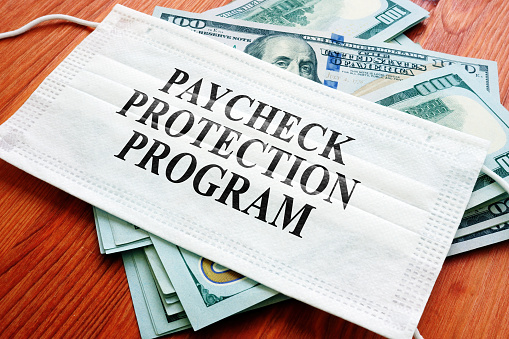If you had a really big pocket stuffed with $130 billion and only a few hours to spend it, what would you do?
That’s the problem facing a group of U.S. senators on Tuesday.
The “pocket” is the Paycheck Protection Program (PPP), an economic stimulus project that, reports the Washington Post, “has both infuriated and sustained small-business owners since its launch in April.”
About $134 billion in PPP funding has gone unused and the deadline for businesses to apply for loans — or for otherwise allocating the money — is midnight Tuesday.
“Sens. Marco Rubio (R-FL) and Ben Cardin (D-MD) are leading a group considering how best to use the remaining funds to help small businesses as they begin to reopen,” the Post says, adding that it obtained a draft copy of a PPP bill proposed by Rubio, who is chairman of the Senate Small Business Committee.
The draft calls for setting aside $25 billion for businesses with fewer than 10 employees and blocking hotel or restaurant chains from receiving loans totaling more than $2 million, the Post says.
The loans can be forgiven if businesses meet certain guidelines, including using 60% of the money to keep employees on their payrolls.
“In order for businesses to be able to apply for that money in the coming weeks, Congress would need to pass legislation to either extend the deadline for the program, or create the next phase of the program,” says ABC News, adding that it “seems unlikely” that either could be completed by the end of the day.
A bill proposed weeks ago by Sens. Cardin and Jeanne Shaheen (D-NH), who helped write the original PPP legislation, would extend Tuesday’s deadline by six months days to let more businesses obtain loans.
The Cardin-Shaheen bill “would restrict new lending to small businesses with 100 employees or less [which is] significantly lower than the 500-employee cap that applies under current rules,” the Post says.
Rubio, however, is not inclined to postpone the deadline; instead, the Post says, he’s “leaning toward providing new programs to meet businesses’ changing needs as parts of the country are able to reopen.”
“The fact that billions are still available does not necessarily indicate small businesses have no need for it,” ABC says.
“For many small businesses, especially those run by sole proprietors or in economically disadvantaged areas, which may not have access to accounting professionals or experience obtaining loans, the process to receive PPP funding was, and continues to be, daunting.”



